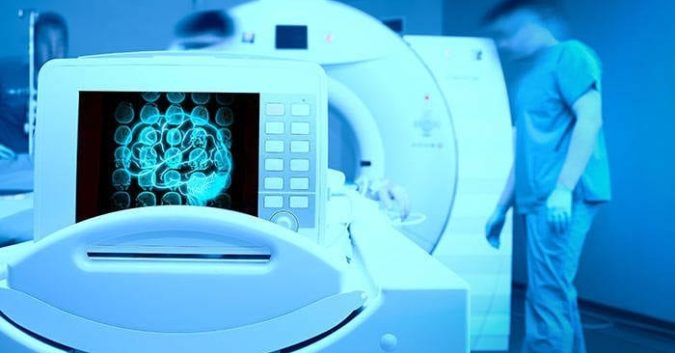For years, people have feared getting X-rays, CAT and PET scans, MRIs, and the like – but have such fears ever been proven rational? A recent article published in the latest edition of the journal Biometals raises troubling concerns over the potential dangers of widely used magnetic resonance imagining (MRI) drugs, such as Omniscan™ and Magnevist®.
Known as Gadolinium-based contrasting agents (GBCAs), these drugs contain the heavy metal called Gadolinium, which is injected into patients before the MRI procedure to help improve the clarity of one’s scans. But is improved image quality worth the risk? New evidence may confirm our age-old fears: Namely, the study shows that these Gadolinium-based drugs can potentially build up inside of some patient’s brains – yes, heavy metals in their brains – and this, rightly so, has scientists and patients alike worried over the potential health risks.
The study challenges the long-standing belief in the scientific community that GBCAs pass quickly and harmlessly through the body. It also challenges the once-common notion that only patients with a history of kidney failure are at risk from GBCA-exposure.
Doctors Moshe Rogosnitsky and Stacy Branch at the Medinsight Research Institute in New York discovered that “there is a rapidly growing body of data that Gadolinium accumulates in tissues (including brain, bone, and kidneys) of patients exposed to GBCAs” even when those patients have perfectly healthy kidneys.
The findings bring up the disturbing possibility that anyone could potentially be at risk when injected with drugs like Omniscan, manufactured by General Electric, and Magnevist, created by Bayer.
The FDA’s 10-Year History with GBCAs
The concern isn’t new; in fact, questions surrounding GBCAs have been an important medical issue since 2006, when Danish researchers discovered that as Gadolinium built up inside of the human body, it could cause a rare but severe disease called Nephrogenic Systemic Fibrosis (NSF). Victims of NSF suffer an extreme thickening in their skin and internal organs that can lead to paralysis or even death. Because other research is relatively new, it is still unknown whether or not GBCAs can cause similar damage to the brain.
The U.S. Food and Drug Administration (FDA) has taken mixed approaches to warning consumers about GBCAs. The agency does require all 9 GBCA drugs available in the U.S. to now carry a “black box” warning. The black box warning label is the FDA’s strongest warning, and is intentioned to alert the public to potentially severe and deadly side effects. For example, black box labels are included on such medications as Opioids (like OxyContin® and Percocet®), which are known to be especially dangerous and addictive to consumers. However, in 2009, Pro Publica reported that the FDA “ignored two of its own medical reviewers who wanted to ban Omniscan for patients with severe kidney disease.” The agency did, eventually, recommend doctors not administer certain GBCAs to patients with kidney problems.
GBCAs Remain the Focus of Investigations from around the World
Currently, the FDA and its counterpart across the Atlantic, the European Medicines Agency (EMA) have separately announced that they will launch investigations into the effects of gadolinium deposits on the brain. The agencies are responding to a June 2015 article published in Radiology that said researchers "now have clear evidence" that GBCAs can harm patients with healthy kidneys. The authors of the article recommend that doctors limit the use of GBCAs to situations where it is an absolute necessity.
If future studies find that GBCAs are in fact harmful to the brain, it may possibly be too late to help patients who have already been repeatedly exposed. Dr. Rogosnitsky said his research, “did not reveal a single suitable drug to swiftly remove Gadolinium from the body.” Rogosnitsky’s statement is a major concern when one considers this: That it can take an estimated 156 years for Gadolinium to be fully flushed from the system – even with the help of medical procedures. And – obviously – by that point, it will be well too late for anybody.
